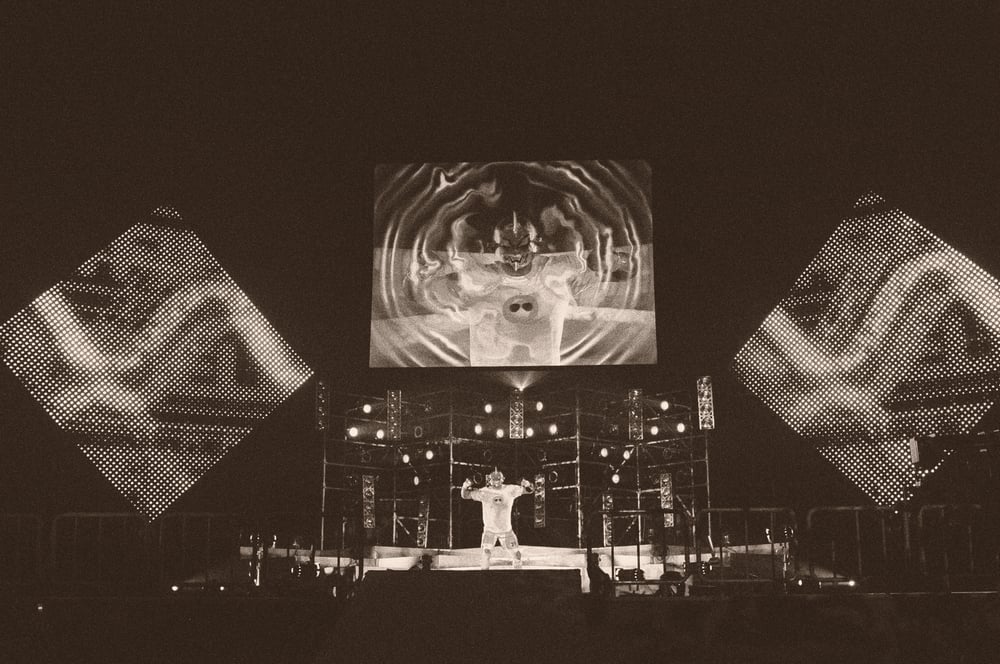
Issue 096
December 2012
How UFC: Ultimate Japan gave Nippon it’s most famous, and favorite, fighting hero: Kazushi Sakuraba
Ultimate Japan, also known as UFC 15.5, was an attempt to boost the fortunes of the struggling Ultimate Fighting Championship. In December 1997, the UFC headed to Yokohama with the aim of opening a new frontier and seeking sanctuary from the regulators who were hell bent on shutting down the sport in the US. Japan seemed like fertile ground, as mixed martial arts had existed in the country since the ‘80s thanks to organizations such as Pancrase and Shooto. Rather than providing a new beginning for the promotion, Ultimate Japan introduced the world to a man who would become a star attraction of their biggest rival.
The card featured two title bouts: Randy Couture decisioned Maurice Smith to take the heavyweight strap and Frank Shamrock pulled off a shock, catching former Olympic gold medal winning wrestler Kevin Jackson with an armbar after just 16 seconds of the opening round to become the first UFC champion at 205lb (then known as middleweight). Despite a couple of belts being up for grabs, the real focus of the night was the heavyweight tournament.
Bar-brawling fan favorite Tank Abbott, 243lb Marcus Silveira and Yoji Anjo were on board, with a place open due to a spate of injuries. Kingdom Pro Wrestling pushed forward Kazushi Sakuraba as a last-minute replacement. The five-foot-nine Sakuraba was thought to weigh around 180lb and eyebrows were raised when his official mark was given as 203lb; 3lb inside the UFC’s minimum mark for participation in the heavyweight division.

Leading up to the event, the UFC management had received overtures from various Japanese groups, all forcefully lobbying to be involved in co-promotion or to have their fighters included on the card. In his autobiography, Let’s Get It On, referee ‘Big’ John McCarthy says the visiting Americans were uneasy about the inclusion of Sakuraba and claims that UFC supremo Bob Meyrowitz told him: “As soon as he’s in trouble, just get him out of there. Don’t let him get hurt.”
Sakuraba was drawn to fight Silveira. Early in the contest, the huge Brazilian cornered his man and began landing hard punches. The Japanese fighter fell to his knees and McCarthy dived in to wave it off. Replays clearly showed that Sakuraba had dropped levels to attempt a single-leg takedown. The stoppage had been an error. Like the pro wrestler he was, Sakuraba played to the crowd and tried to grab the mic to make his case, but Bruce Buffer staunchly refused to hand over the tool of his trade.
Such miscarriages of justice often result in a rematch down the line, but at Ultimate Japan it was possible to make things right on the night. In the other semi-final, Tank Abbott repeatedly took Anjo to the canvas and beat him up. Tank took a clear unanimous decision but paid the price. In his post-fight interview he complained his hand hurt and the doctor soon confirmed it was broken. It was quickly agreed the final would be a rematch of Silveira vs Sakuraba.

This time, the fans were treated to a superb grappling display with jiu-jitsu black belt Silveira aggressively pitting his skills against the catch wrestling Sakuraba had been taught by the British legend Billy Robinson. Eventually, Silveira went for a kimura, Sakuraba countered, slickly applied an armbar and it was all over. Basking in the glory of his win, Sakuraba uttered the famous line: “In fact, professional wrestling is strong.”
The UFC, put off by some of the strong-arm business practices they had encountered in the Orient in this and two subsequent events, withdrew to their home turf. In Japan, others recognized the potential for big-time MMA and were assisted by a hero the UFC had helped to create.
When the Pride organization took its baby steps, the Japanese public held out little hope of a major home success. The general view was that the local wrestlers would struggle against the much-hyped foreign fighters. That all changed when Sakuraba took on the biggest of the big name imports: UFC 1, 2 and 4 winner Royce Gracie. The match had no time limits – supposedly favoring the Brazilian. After 90 minutes, Sakuraba’s wrestling skills and crushing leg kicks prevailed. The towel came in. Japan rejoiced. ‘The Gracie Hunter’ was born. Royler, Ryan and Renzo came to represent the first family of fighting in the Land of the Rising Sun. Sakuraba dealt with them all.
Without Sakuraba, Pride would not have flourished as it did. The promotion had a homegrown superstar to market. Sakuraba appealed to a wider audience; brought up in the crazy world of pro wrestling, he understood how to put on a show. His flamboyant personality and love of masks and capes married to his employer’s extravagant production values provided the blueprint for the Oriental MMA spectaculars we know and love.
...









